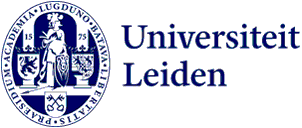
Trust in Brussels? ‘The EU would be wise to respect and protect national identities’
Many European citizens feel connected to the European Union and place trust in it, Eva Grosfeld found in her PhD research. Yet around a quarter do not identify with the EU at all. How can the EU regain their trust?
For many years, the authority of the European Union was broadly taken for granted by citizens of its Member States. But that began to shift in the 1990s. Eva Grosfeld, who recently completed her PhD at the Europa Institute of Leiden Law School, Leiden University, and is now a guest researcher in Organisational Behaviour at Utrecht University, explains: ‘Until then, the EU was mainly concerned with economics and trade. But around that time, it began to address political issues such as foreign policy and security – topics that touch directly on people’s sense of identity.’

Psychological insights
Since the 1990s, criticism of the EU has grown, culminating in the United Kingdom’s departure in 2020: Brexit. ‘People did not seem to be acting purely rationally, but emotionally.’ Yet European law is largely based on the assumption of rational decision-making. This tension led Grosfeld to her central research question: how can psychological insights contribute to strengthening trust in the EU?
Legitimacy
‘The European Union needs trust and legitimacy in order to solve problems effectively,’ Grosfeld explains. ‘If the EU proposes new, potentially controversial legislation – for instance, ambitious climate policies – citizens must be willing to make sacrifices. To secure that willingness, the EU must draw on a source of legitimacy.’ There are different forms of legitimacy, but Grosfeld and her colleagues examined perceived legitimacy: the subjective sense that the EU has the right to make decisions affecting one’s life, that it does so properly, and that one is willing to comply with the rules. Grosfeld focused in particular on the social-psychological aspects of legitimacy: morality and identity.
4000 European citizens
Across seven studies involving around 4,000 citizens from different Member States, Grosfeld and colleagues gathered data. ‘We also collected data at a polling station in Leiden during the 2023 elections, but most of our studies were conducted online through the participant platform Prolific, so that we could sample a representative cross-section of the European population.’ Participants answered questions about their values, the extent to which they identified with both European and national identities, and how legitimate they perceived the EU to be. The researchers also experimentally tested strategies for increasing perceived legitimacy.
National and European identity
Those who hold a strong European identity tend to perceive the EU as more legitimate, Grosfeld found. ‘Importantly, many people do strongly identify as European,’ she emphasises. That identity is shaped largely by shared values associated with the EU: freedom, equality, respect for human rights, democracy, and the rule of law. ‘At the same time, we saw that many people also considered their national identity to be very important. These identities can coexist. Media and politicians sometimes frame national and European identity as opposing forces, but our research shows that many people feel both proud of their country and strongly European.’
‘Pride in your national identity and your EU identity can coexist'
A challenge for legitimacy
A strong national identity is not necessarily an obstacle to perceiving the EU as legitimate – unless people feel that the EU threatens that national identity. When that perception arises, it becomes a problem for legitimacy. To address this, Grosfeld examined ways to strengthen legitimacy. ‘For most people, an EU identity affirmation helps: reflecting on why one is proud to be a citizen of the EU.’ This approach does not work for those with an exclusive national identity, who do not identify with the EU at all. ‘For them, legitimacy comes from reassurance that national identity is genuinely protected, or from instrumental benefits such as economic gains and security.’
Not to be taken for granted
Despite alarming headlines about Euroscepticism, Grosfeld’s research shows that many European citizens do identify with European values and do trust the EU. However, the EU would be wise not to take this perceived legitimacy for granted, but to actively safeguard and nurture it. 'This means respecting national identities and considering them in decision-making. And it means incorporating psychological insight into policy and lawmaking. Especially in areas such as defence, it is crucial to understand how identity and morality shape people’s responses.’
